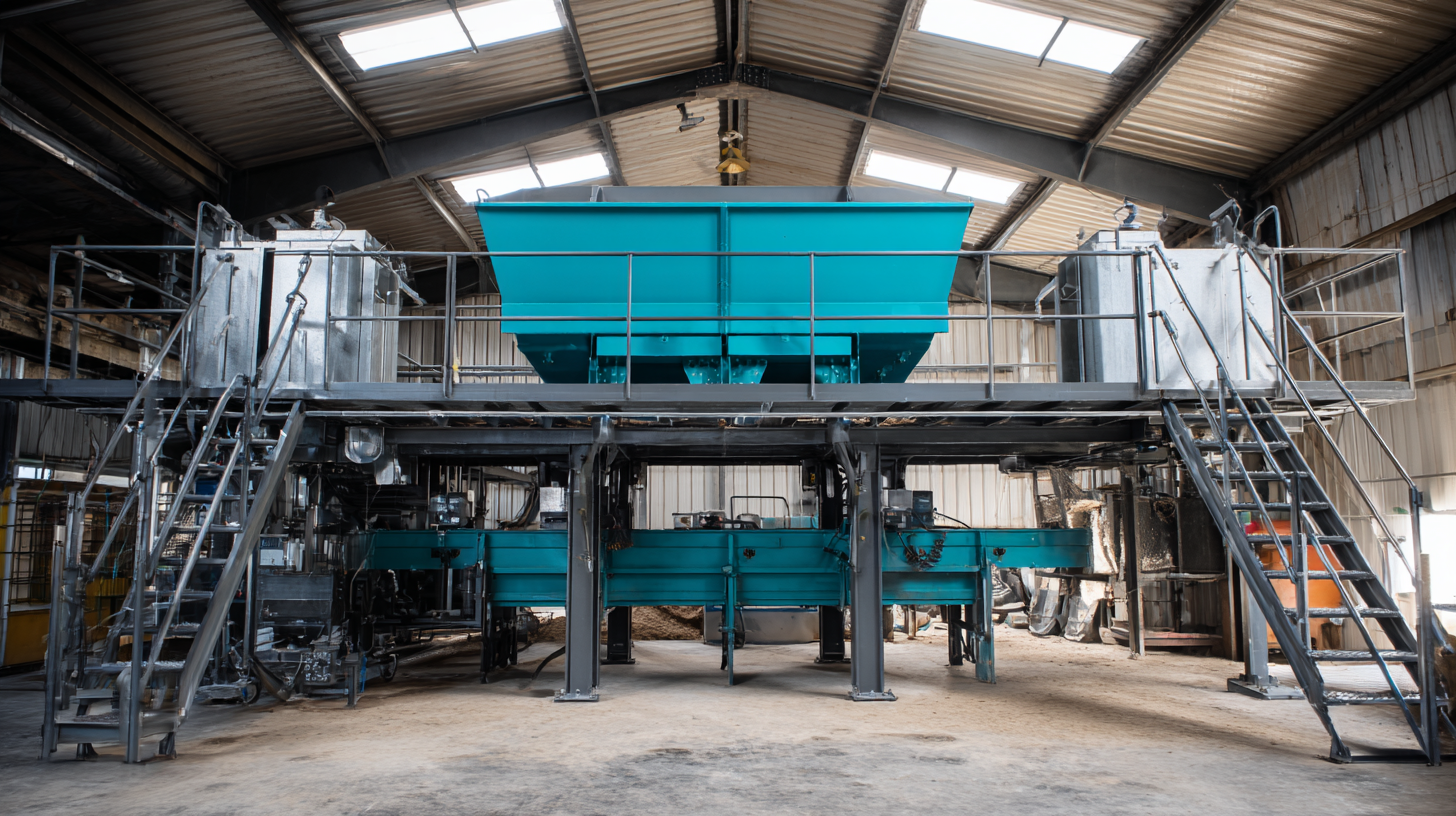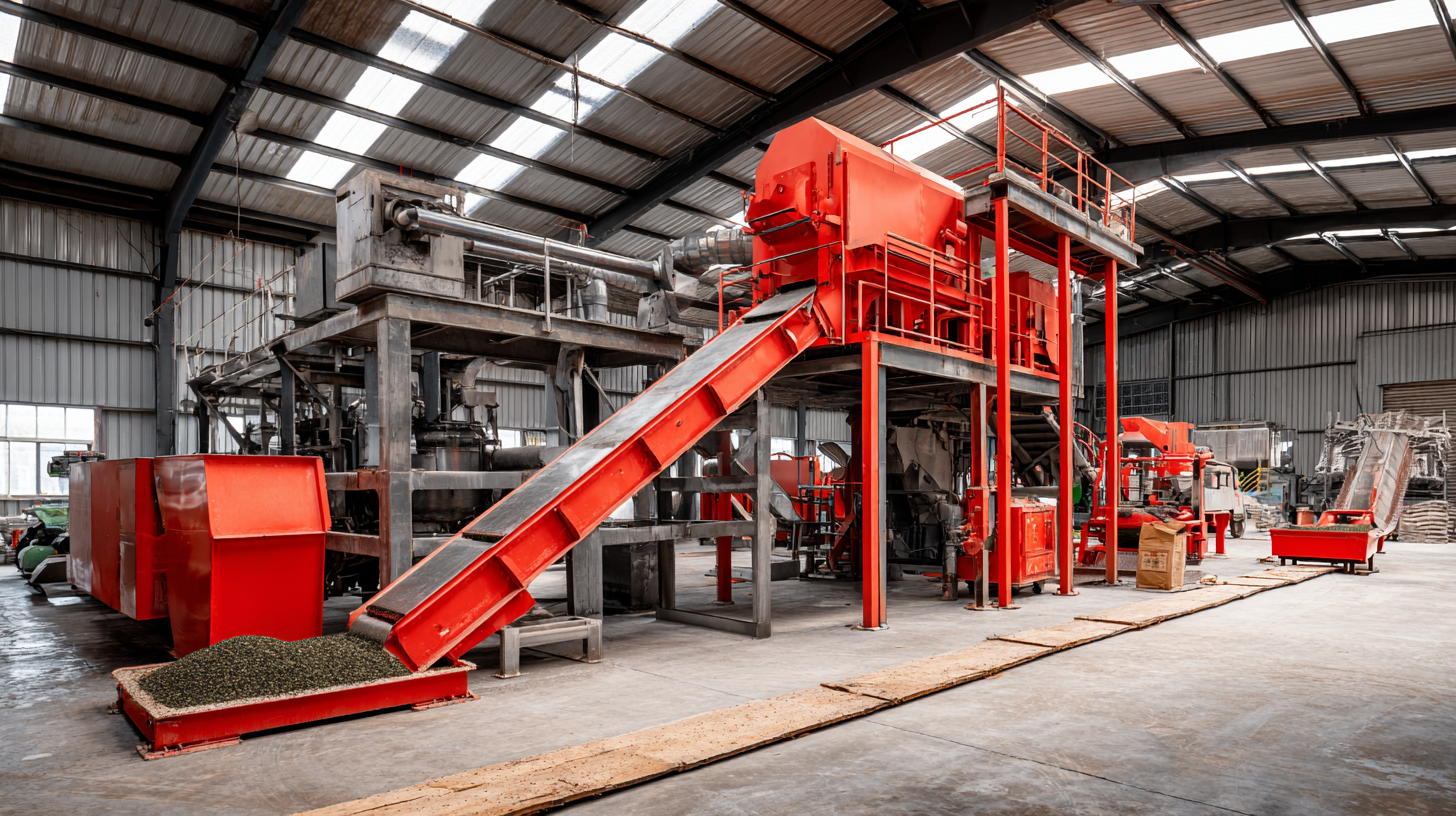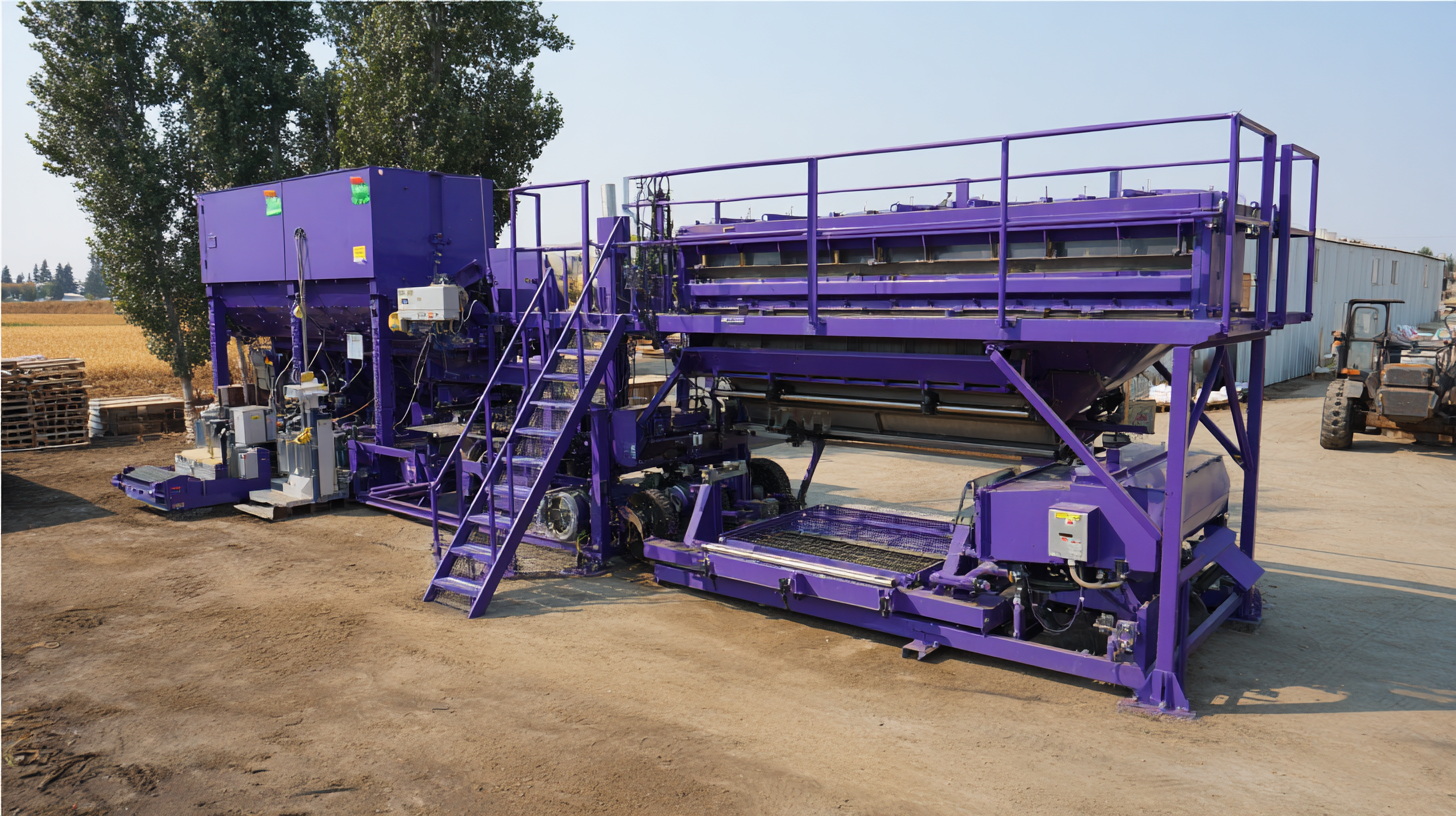How to Choose the Right Feed Block Making Machine for Your Farm Needs
Table of Contents
- Understanding Your Farm's Specific Needs for Feed Blocks
- Evaluating Different Types of Feed Block Making Machines
- Key Features to Consider When Choosing a Machine
- Assessing Production Capacity and Efficiency Requirements
- Budgeting for Your Feed Block Production Investment
- Maintenance and Support: Ensuring Longevity of Your Machine
- FAQS
- Related Posts
In the ever-evolving landscape of modern agriculture, selecting the right Feed Block Making Machine is crucial for farmers aiming to optimize their feed production processes. With over 25 years of expertise, Shanghai Zhengyi Machinery Engineering Technology Manufacturing Co., Ltd., CPSHZY, stands out as a leader in the manufacturing of feed processing machinery. Our commitment to quality and innovation has made us a trusted provider of pellet mill dies and environmental protection systems tailored for feed plants and aquaculture farms. In this ultimate guide, we will explore key considerations to help you choose the perfect Feed Block Making Machine that aligns with your specific farm needs, ensuring efficiency, sustainability, and superior feed quality for your livestock.

Understanding Your Farm's Specific Needs for Feed Blocks
Choosing the right feed block making machine involves a thorough understanding of your farm's specific needs for feed blocks. According to the Feed Industry Association, livestock production in the U.S. alone has reached significant levels, with over 90 million cattle on farms. This increasing population of livestock drives the demand for efficient feed production, necessitating a feed block machine that can cater to varying feed types and formulations. An assessment of factors such as the type of livestock, nutritional requirements, and the scale of production is crucial to ensure that you select a machine that can meet these specific needs.
Additionally, the efficiency and capacity of the feed block making machine play a vital role in meeting farm demands. Industry reports indicate that machines with a production capacity of 1 to 4 tons per hour can significantly reduce labor costs and provide consistent feed quality. When evaluating different models, consider features such as adjustable block density and size, which can help tailor the feed to the specific dietary needs of your animals. Understanding these unique requirements will ultimately lead to improved livestock health and productivity.
Evaluating Different Types of Feed Block Making Machines
When evaluating different types of feed block making machines, it's essential to consider a few key factors that align with your farm's unique needs. Various models are available, tailored for different production capacities and feed formulations. For instance, a recent analysis indicates that machines with a higher throughput can produce up to 5 tons of feed blocks per hour, effectively supporting large-scale farming operations. Conversely, smaller models may be more suitable for medium to small farms, allowing flexibility in production volume without incurring excessive costs.
Additionally, the choice of materials used in the manufacturing process significantly impacts the quality of feed blocks produced. Studies show that using high-quality raw materials can improve digestibility and nutritional value, leading to better livestock performance. For example, machines equipped with advanced compression technology are better at blending various ingredients seamlessly, resulting in consistent feed block density. This technical capability can not only enhance the efficiency of feed utilization but also reduce waste, which is increasingly crucial in sustainable agricultural practices.
Key Features to Consider When Choosing a Machine
When selecting a feed block making machine for your farm needs, it’s essential to consider several key features that can significantly impact your operations. Firstly, the machine's capacity should align with your production requirements. Assess whether you need a high-output machine for large farms or a smaller unit for modest needs. Additionally, the type of feeding materials you plan to use plays a crucial role. Some machines are designed to handle specific ingredients effectively, so ensure that your choice can accommodate the raw materials you intend to feed your livestock.
Another important feature is the machine's ease of use and maintenance. Look for models that offer user-friendly controls and require minimal downtime for cleaning and repairs. Durability and build quality are also paramount; investing in a robust machine will reduce the frequency of replacements and maintenance costs. Lastly, consider energy efficiency and technology integration. Machines that are optimized for power consumption and come with smart features like automation can save you time and resources, ultimately enhancing your farm's productivity.
Comparison of Key Features in Feed Block Making Machines
Assessing Production Capacity and Efficiency Requirements
When selecting a feed block making machine for your farm, assessing production capacity and efficiency is crucial to meet your specific needs. The first step is to determine the volume of feed your operation requires. This involves evaluating your livestock population and their feed consumption rates. A machine that produces at a higher capacity than needed may lead to unnecessary energy costs and wastage, while one that is too small could cause production bottlenecks during peak demands. Striking the right balance ensures optimal performance without overextending your budget.
Efficiency is another key factor to consider. Look for machines that maximize output while minimizing energy consumption and raw material waste. Advanced technology features, such as automation and precision feeding, can enhance operational efficiency and reduce labor costs. Additionally, consider the machine’s versatility—can it handle various feed types or adjust to changing farm conditions? A well-chosen feed block making machine should align with your production goals and sustainability efforts, ultimately supporting the long-term success of your farming operation.

Budgeting for Your Feed Block Production Investment
When considering the purchase of a feed block making machine, budgeting becomes a critical aspect of your investment strategy. The recent developments in India’s Union Budget 2025-26, which emphasize transformative reforms across agriculture, highlight the increasing importance of supporting farming operations with the right machinery. Effective budgeting not only involves understanding the upfront costs of machinery but also assesses operational efficiency, maintenance, and potential return on investment through increased production capabilities.
At Shanghai Zhengyi Machinery Engineering Technology Manufacturing Co., Ltd., we recognize the importance of aligning your financial strategy with the right equipment. With over 25 years of experience in manufacturing feed processing machinery, our commitment to quality ensures that your investment in a feed block making machine will meet your specific agricultural needs without overspending. By carefully evaluating the initial investment against long-term benefits, you can make a more informed decision that aligns with both your budget and your operational goals.
Maintenance and Support: Ensuring Longevity of Your Machine
 When investing in a feed block making machine, maintenance and support should be top priorities to ensure the longevity and efficiency of your equipment. Regular upkeep not only keeps the machine running smoothly but also extends its lifespan, saving you money in the long run. It's essential to establish a routine maintenance schedule that includes cleaning, lubrication, and inspection of moving parts.
When investing in a feed block making machine, maintenance and support should be top priorities to ensure the longevity and efficiency of your equipment. Regular upkeep not only keeps the machine running smoothly but also extends its lifespan, saving you money in the long run. It's essential to establish a routine maintenance schedule that includes cleaning, lubrication, and inspection of moving parts.
Tip: Always keep the machine clean and free from built-up feed residues, as this can affect performance and lead to mechanical issues. Additionally, make sure to inspect belts and gears regularly for signs of wear and tear, replacing them as needed to avoid more significant problems down the road.
Support from the manufacturer or supplier is crucial. Having access to expert advice and readily available spare parts can make a significant difference when issues arise. Ensure your supplier offers solid after-sales support, including guidance on best practices for operation and maintenance.
Tip: Don’t hesitate to reach out for help or ask for training sessions for your staff when you purchase the machine. Proper understanding of the machine’s features and consistent usage can greatly enhance its performance and longevity.
FAQS
: Consider the type of livestock, nutritional requirements, and scale of production. Additionally, look for features like adjustable block density and size to meet specific dietary needs.
Machines with a production capacity of 1 to 4 tons per hour can significantly reduce labor costs and provide consistent feed quality, thus better meeting farm demands.
Various models exist, ranging from high-throughput machines that produce up to 5 tons of feed blocks per hour for large farms, to smaller models for medium and small farms.
Using high-quality raw materials improves digestibility and nutritional value, leading to better livestock performance. Advanced compression technology in machines also helps blend ingredients effectively.
Budgeting is crucial as it involves understanding upfront costs, assessing operational efficiency, maintenance, and potential returns on investment through increased production capabilities.
Operational efficiency leads to reduced waste, enhances feed utilization, and contributes to sustainable agricultural practices, making it a key consideration in machine selection.
Careful evaluation of the initial investment against long-term benefits will help ensure that the machine meets agricultural needs without excessive spending.
Advanced technology, such as improved compression, enhances the consistency of feed block density, boosts efficiency, and minimizes waste, which is vital for sustainable practices.
By tailoring feed blocks to meet the specific dietary needs of livestock, the right machine can lead to improved health outcomes and enhanced productivity among animals.
Consider ongoing maintenance requirements and how they might affect overall operational costs in conjunction with the initial purchase price to ensure sustainable budgeting.
Related Posts
-

Solutions for Optimal Efficiency in Best Animal Feed Processing Machine Production
-

Unlocking Efficiency in Livestock Management with the Ultimate Feed Mixer Machine
-

A Comprehensive Tutorial on the Best Animal Feed Pellet Making Machine for Beginners
-

7 Essential Features of the Best Poultry Feed Machine for Global Buyers
-

Mastering the Best Die Cutting Techniques with In-Depth Technical Specifications and Step by Step Guide
-

How to Navigate Import and Export Certifications for Best Mould Tech Industries
Blog Tags:

